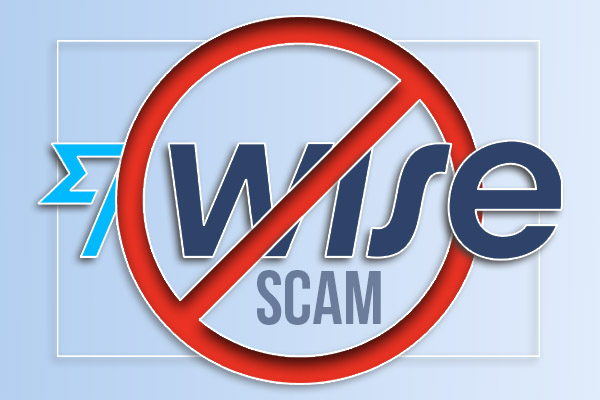Early on, only a few services, such as Western Union and PayPal, were permitted to exchange currencies when individuals began to perform cross-border transactions online. Today, multiple corporations are allowed to do these transactions. However, “TransferWise” is one firm stepping outside the benchmark. A money transfer firm called Wise—previously called Transferwise—is involved in this scenario. They claim that they can trade currencies for eight to 10 times less than market rates. They also have a straightforward yet sophisticated method to do so.
Transferwise is one of the fintech firms offering consumers the ability to send and receive money. Unfortunately, it is difficult to tell whether the transferwise scam is real or not because of the years’ worth of accumulated misinformation.
It takes two or more nationwide transfers to avoid costly international payments as a replacement for a foreign transaction. Since it is not widely used, no money crosses international boundaries, and the middle market determines exchange rates. Customers can altogether avoid traditional bank fees in this way.
Since users began leaving contradictory ratings, Transferwise scams have become a problem. Some claimed to be the most significant payment service among other firms, while others thought it was a full-fledged con.
Popular TransferWise scams to avoid:
1. Unintentional financial transfer:
You get a transfer from a stranger via Venmo, Cash App, Zelle, PayPal, Apple Pay, Google Pay, or another comparable service. The transfer’s price range could change, but it will generally be a few hundred dollars. After the transfer, you’ll get a notice saying it was sent accidentally and that you must return the money. Naturally, you want to do the right thing, so you refund them for the “accidentally” transferred amount. However, after doing so, you realise that you never actually received a transfer from them, and you have now lost up to a few hundred dollars. This is one type of TransferWise scam.
How to avoid: Don’t give them their money back. Most likely, the initial transfer they sent you was funded by a stolen credit card, which will automatically be reversed. Instead, ask the person who “accidentally” paid you money to reverse the transaction on their end, or ask them to contact the platform directly for support.
2. Scams involving online purchases:
You’ve located your ideal apartment, but the rent must be transferred in advance for the first month, or a timeshare, but you must first pay your taxes with a money order. However, while purchasing cars, there may be application fees that need a payment in wire transfer in addition to the incredible offer that your car search may have yielded. While many online merchants are trustworthy, scammers use the Internet’s anonymity to defraud you. That includes requesting payment before receiving the item. Before you know it, your money and the recipient are both gone.
How to avoid: Be wary of anyone online who promises you upfront payments or deposits, especially if you haven’t met them yet and there isn’t a contract. Additionally, look for another merchant if someone online claims that the only accepted payment methods are wire transfers or money orders. Or you can suggest meeting in person.
3. Phishing fraud:
You open your computer to see an email from your bank asking you to confirm your account number. Or it can be from an online store that needs your password verified. In addition, this email provider may occasionally send you a link asking you to click and confirm your information. Everything seems so official; it becomes hard to decipher and no one suspects or questions about “how could it not be true?”
How to avoid: Do not provide any personal information over email or any other source. Remember that no reputable bank, merchant, or another service provider would ever contact you to request confirmation of your password, personal information, or financial information. You should bring this to the higher authority’s attention since it is “phishing”, and you shouldn’t respond to it or open any of the links attached onto the emails.
4. Fraudulent checks:
You are not immune to scammers just because you are an internet seller. Unbelievably, they’ll discover a solution even if the situation changes. For instance, your online auction may have received a response with a cheque for more than your item’s worth and a simple request for you to pay back the difference. Since the review is probably a forgery, you will be responsible for paying your bank’s bounced cheque fee and will additionally lose the money you wired back.
How to avoid: Cashier’s cheques shouldn’t be cashed if you receive one. Please take it to your bank or the authorities for validation first.
These are the most popular TransferWise scams that one needs to avoid. Hopefully, these steps will prevent you from being a victim to these scams.
Summary:
One of the fintech firms that allows customers to send and receive money is Transferwise. They assert that they can exchange currencies for eight to ten times less than what the market is now delivering. Transferwise scams have increased as a result of individuals leaving conflicting reviews. Even if there are many reliable internet retailers, scammers will take advantage of your vulnerability online. Anyone online who offers you upfront money or deposits should be avoided. Your bank will charge you a bounced cheque fee, and you’ll lose the amount you wired back because of the fake cheque.



